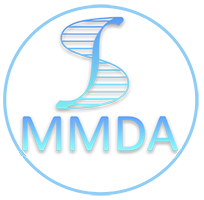Applied Mathematics Specialists are professionals in the mathematical knowledge usability and computer technology to solve a variety of practical problems in complex systems of various natures.
Applied mathematician is an expert, which can change substantive sense of particular problem into language of mathematical ratios, find effective solution of mathematical problem, interpret in terms of actual subject area, and develop it to final realization. Methodological instruments of applied mathematician are the theoretical methods of analysis and synthesis of systems. Knowledge of those methods is obtained through deep learning by students of the methods of mathematical and computer modelling, investigation of operations and system analysis, optimization, optimal administration and theory of taking decisions, theory of games, theory of information and coding, theory of risks and reliability, theory of nonlinear dynamic systems and others.
Fundamental training of applied mathematician is achieved through mastering of classical mathematical sections such as mathematical and discrete analysis, mathematical logic and theory of algorithms, differential equations, theory of function of complex variables, functional analysis, theory of probabilities, random processes and mathematical statistics. The apparatus of classical mechanics is tested by time. It transformed into everyday tool of research on only in science (physics, astronomy, biology, ecology), technics (information technologies, informational security and cryptography, engineering directions), but also in economics, financial sphere, insuring, management, sociology, state administration, business. The majority of prominent scientists, designers, economists, experts in direction of social research think, that further advancement of their directions is indissolubly linked with broad and sanguineous use of modern mathematical methods.
Everyday working tools set of applied mathematicians are modern computer equipment and appropriate programmed tools. Exactly deep knowledge and experiences in this direction fulfill today the high inquiring and competitiveness at labor market of experts in applied mathematics.
The students of IPT obtain a broad variety of disciplines, linked with computational technics and programming: algorithms and data systems, algorithmic languages С++, Java and Python, architecture of computers and assembler language, system programming, object-oriented programming, operational systems, data bases and data analysis, specialized programmed tools, computer graphics, parallel and divided computations, computer networks and network technologies, verification programs and methods of testing, object-oriented analysis and projecting, artificial intellect, formal methods of specification of programmers and others.
Students learn to work in several operating systems and use several programming languages. The big attention is given to the use of supercomputers and supercomputer technologies in modelling, divided and cloud computations.
